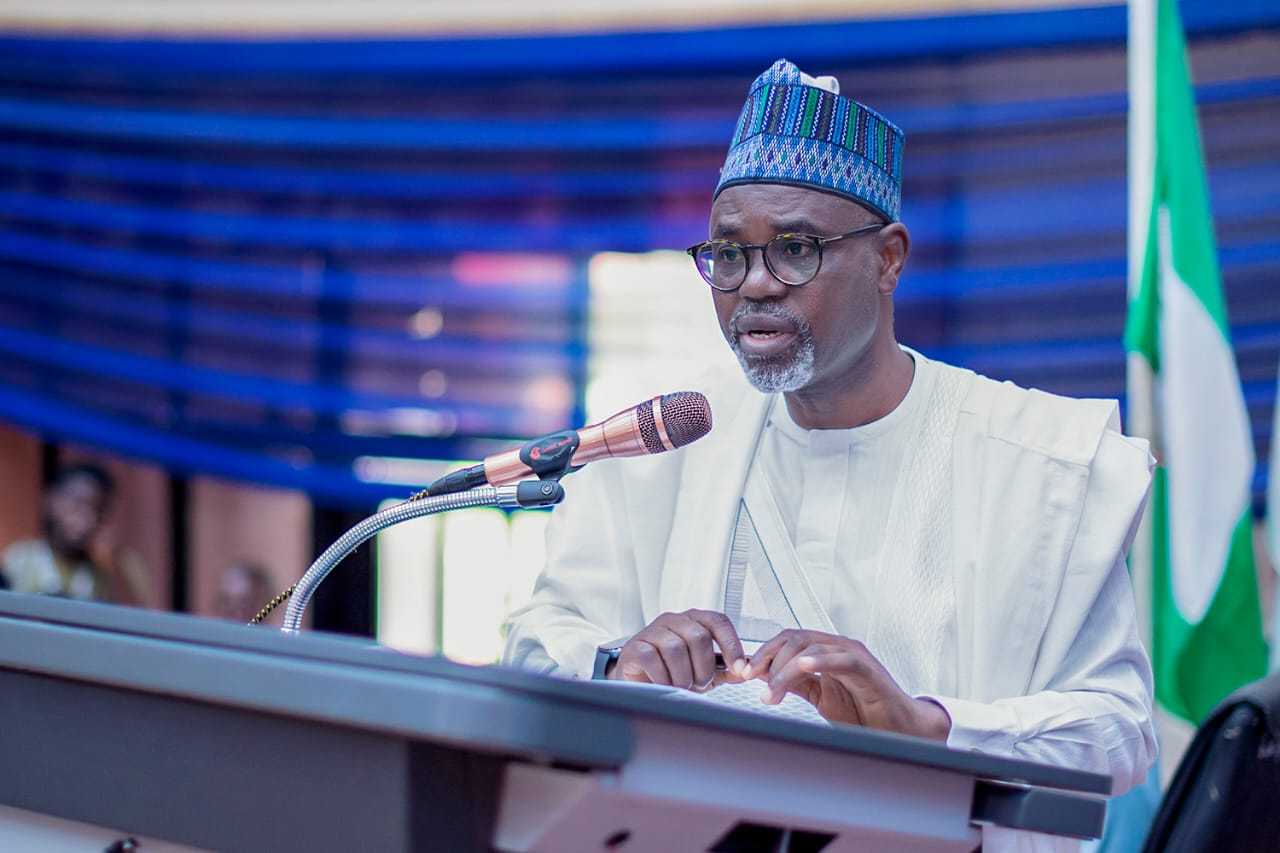
AI, the future of the world, says Egbewole
Campus News

The Vice Chancellor of the University of Ilorin, Prof Wahab Olasupo Egbewole, SAN, has noted that Artificial Intelligence is the future of the world.
Prof Egbewole made this assertion last Thursday (December 18, 2024) while speaking at this year’s edition of the Honourable Justice Muhammad Mustapha Adebayo Akanbi Annual Public Lecture held at the Law Faculty Moot Court. The theme of the Public Lecture was ”Navigating the Digital Divide: How Artificial Intelligence Can Enhance Access to Justice”.
According to the Vice Chancellor, “the transformative potential of Artificial Intelligence is not just a technological advancement; it is a revolution that is reshaping industries, economies, and the societies at large”.
Prof. Egbewole pointed out that as the future unfolds, AI will continue to enhance human capacity, offering solutions to some of the world’s most complex challenges.
He, however, noted that as we embrace this transformative power, we must also prioritise ethical considerations to ensure that AI is developed and deployed responsibly, with fairness and inclusivity at its core.
Prof Egbewole maintained that the University recognised the critical role education plays in preparing future leaders to navigate this evolving landscape, adding that “our commitment is to equip our students with the knowledge and skills needed to harness AI’s potential for societal progress”.
He explained that this was the reason why the University decided to sponsor 500 students to learn the use of Artificial Intelligence.
Also speaking, the Dean of the Faculty of Law, Prof. Nimah Modupe Abdulraheem, maintained that as we embrace the opportunities presented by AI, we must also be mindful of the challenges and risks associated with its deployment.
She added that Artificial Intelligence holds transformative potential for our judicial system as it can streamline processes, enhance legal research, and provide tools for better case management.
Prof. Abdulraheem, however, noted that as we embrace these technologies, we must also be vigilant about their implications and must ensure that AI is used ethically and responsibly, guarding against biases that could exacerbate existing inequalities within our justice system.
In his lecture, the Guest Lecturer, Justice Kareem Adeyimika Adedokun of the Oyo State High Court, noted that initially, the adoption of AI in the legal field was limited to the largest law firms handling significant cases and deals. He, however, noted that over time, the applications and uses of AI in the legal operations have expanded so much so that AI is now being employed in various legal tasks such as legal research, predictive analytics, virtual assistants, document automation, and compliance support.
Justice Adedokun maintained that some of the problems of access to justice such as ignorance of litigants, lack of funds and intimidation among others constitute serious conundrums that hinder societal progress and smear the image of the country globally. He said that the deployment of AI tools and constant interactions and familiarisations with them can obviate and clear those impediments.
The Guest Lecturer added that some of the challenges of AI in access to justice includes infrastructural limitations, digital literacy, data privacy and security, cultural and language barriers among others.
While emphasising that addressing the challenges is essential for ensuring that AI can effectively enhance access to justice in Nigeria, Justice Adedokun said that ”legal organisations can invest in infrastructure by collaborating with government and private sectors to improve internet connectivity in underserved areas.
The highlights of the event included the presentation of award to the Guest Lecturer and goodwill messages from some invited guests.
In attendance at the programme were the Dean of Physical Sciences, Prof. Baba Abdullahi Alafara; Prof. Lukman Ayinla of the Department of Jurisprudence and International Law; the Head of the Department of Islamic Law, Prof Azizat Amoloye-Adebayo, Dr Bunmi Niyi-Gafar of the Department of Jurisprudence and International Law, among others.